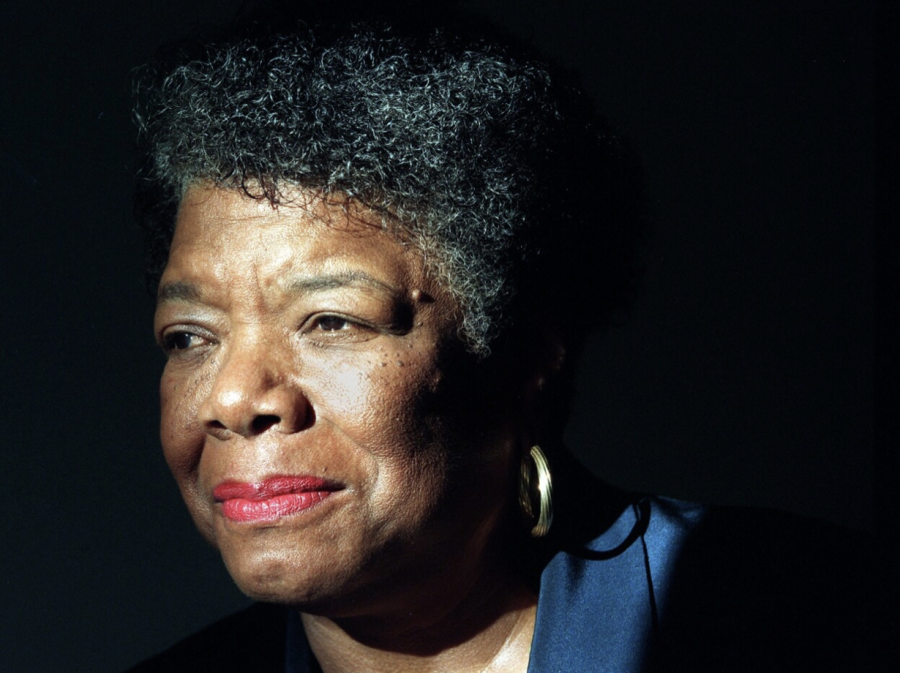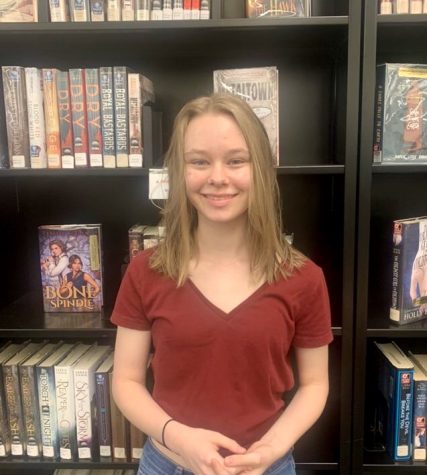Maya Angelou and What Can be Learned From her Resounding Resilience
March 4, 2022
TW: R*pe
“The caged bird sings/with a fearful trill/of things unknown /but longed for still /and his tune is heard / on the distant hill /for the caged bird /sings of freedom” (Angelou, Caged Bird)
Maya Angelou was one of the most influential souls ever to grace the world with her presence. She was born as Marguerite Johnson on April 4th, 1928 in St. Louis, Missouri. She spent the majority of her childhood living with her paternal grandmother in Arkansas. At just seven years old, her childhood was violently ripped away from her, when she was r*ped by her mother’s boyfriend. He was then murdered by her uncles consequently after she spoke of the crime he had committed. Inundated with guilt, feeling personally responsible for the murder of her abuser, Maya withdrew her voice from the world and became silent for several years. During this time she submerged herself into the literary works of Langston Hughes, W.E.B. DuBois, Paul Lawrence Dunbar, William Shakespeare, Charles Dickens and Edgar Allen Poe. About five years later, a woman by the name of Bertha Flowers helped Maya Angelou to speak again and in doing so, she instilled in Angelou a profound love for poetry and language. Angelou graduated at the top of her eighth-grade class that same year, displaying incredible strength, and emotional stamina.
It was this time period which inspired Angelou to write her first extraordinarily impactful autobiography: “I Know Why the Caged Bird Sings”. This beautiful work recorded Maya’s disjointed and traumatic childhood. Angelou wrote seven more autobiographical literary collections, “Mom & Me & Mom”, “Letter to My Daughter”, “All God’s Children Need Traveling Shoes”, “The Heart of a Woman”, “Singin ‘ and Swingin’ and Gettin’ Merry Like Christmas” and “Gather Together in My Name”. Angelou also wrote a number of poetry volumes and took on a variety of roles, some of which included a professor, performer, screenplay writer, screen and stage director, and civil rights activist.
Maya Angelou’s life symbolized the notion of resilience in its entirety, to undergo profound trauma, to rise above it, to flourish in its unforeseen bounties, to live and to leave a powerful legacy that transformed and is still transforming those who read the words of a warrior. Maya Angelou rose wildly beyond the beliefs of those around her; hope is the thing with feathers and Maya flew, uncaged, unbroken and free.
Sources:
“About Maya Angelou.” Academy of American Poets, poets.org/poet/maya-angelou. Accessed 17 Feb. 2022.
Britannica, The Editors of Encyclopaedia. “Maya Angelou.” Encyclopedia Britannica, 24 May. 2021, https://www.britannica.com/biography/Maya-Angelou. Accessed 17 February 2022.
































